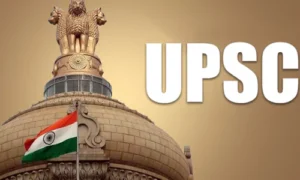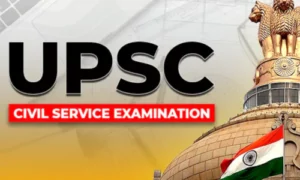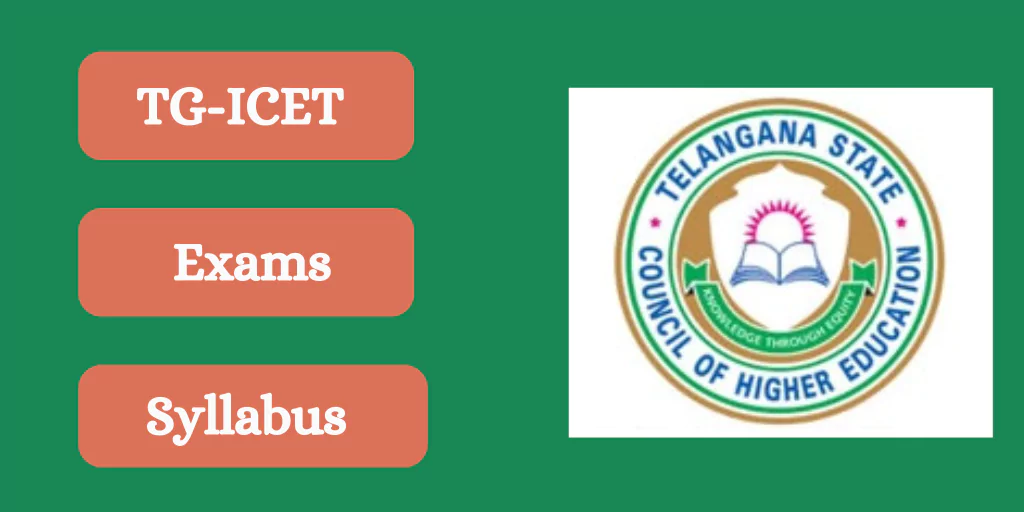Recently updated on May 28th, 2025 at 04:51 am
The Union Public Service Commission (UPSC) conducts the Civil Services Examination (CSE) annually to recruit officers for central government positions, including the Indian Administrative Service (IAS), Indian Police Service (IPS), and Indian Forest Service (IFS), among others. Furthermore, below is a full explanation of the UPSC exam structure and syllabus:
1. Exam Structure
The Union Public Service Commission Civil Services Examination takes place in three stages:
1. Preliminary Exam (Prelims)
- Objective: A screening test to select candidates for the Mains
- Format: Two objective-type (MCQ) papers were administered on the same day
- Duration: The sessions last two hours each
- Total Marks: 400 (200 for each paper)
- Negative Marking: One-third of the score is subtracted for each erroneous answer
Papers in Prelims
1. General Studies (GS) Paper I:
- Focus: Topics covered include current events, Indian history, geography, politics, economics, the environment, science, and technology
- Marks: 200
- Qualifying: Used to shortlist for the Mains
2. General Studies (GS) Paper II (CSAT):
- Focus: Emphasis on comprehension, interpersonal skills, logical reasoning, decision-making, basic numeracy, and data interpretation
- Marks: 200
- Qualifying: A minimum of 33% marks is necessary
2. Main Examination
- Objective: Assess candidates’ in-depth knowledge, analytical skills, and personality qualities
- Paper format: Descriptive (essay-type)
- Total marks: 1750
- Duration: Each paper has a duration of three hours.

Papers in Mains
1. Qualifying papers (not considered for merit):
- Paper A: One Indian language (from the Eighth Schedule of the Indian Constitution) – 300 marks
- Paper B: English – 300 points.
2. Merit-based papers:
- Paper I: 250-mark essay
- Paper II: General Studies I (History, Geography, Indian Society) – 250 points
- Paper III: General Studies-II (Governance, Constitution, Politics, Social Justice, International Relations) – 250 points.
- Paper IV: General Studies-III (Technology, Economic Development, Agriculture, Environment, Security, Disaster Management): 250 points.
- Paper V: General Studies IV (Ethics, Integrity, and Aptitude) – 250 points.
- Paper VI & VII: Optional Subject Papers I & II (candidates select one subject) – 250 marks each.
3. Personality Test (Interview)
- Objective: Evaluate candidates’ personalities, communication skills, decision-making abilities, and suitability for a career in public service.
- Format: The UPSC board conducts a face-to-face interview.
- Marks: 275
- Total Marks: The final merit is determined as 2025 (1750 from the Mains and 275 from the Interview).
2. Syllabus Highlights
1. Preliminary GS Paper-I
- Current Events: Events of national and international significance.
- History of India and the Indian National Movement.
- Indian and World Geography: Physical, social, and economic geography in India and worldwide.
- Indian Politics and Governance: Constitution, Political System, Panchayati Raj, and Public Policy.
- Economic and Social Development: Sustainable development, poverty reduction, inclusion, and demographics.
- Environmental Ecology, Biodiversity, and Climate Change.
- General Science
2. Preliminary GS Paper II (CSAT)
- Comprehension
- Logical reasoning and analytical skills
- General cognitive abilities
- Basic numeracy (Class X)
Mains General Studies Papers
- GS-I: Indian culture, Modern Indian history, World history, Indian society, Global and Indian geography.
- GS-II: Indian Constitution, Governance, International Relations, Welfare Schemes, Non-governmental Organisations (NGOs), Pressure Groups.
- GS-III: focuses on economic development, technology, biodiversity, security, and disaster management.
- GS-IV: Ethics, attitude, emotional intelligence, and public/civil service ideals.
Preparation Tips:
- Prelims: First, study current events, NCERT textbooks, practice mock examinations, and Previous papers.
- Mains: Next, improve your answer-writing abilities and, additionally, enhance your in-depth comprehension of themes.
- Interview: Finally, improve communication skills and stay up to date on current concerns.
UPSC recruitment post list
The UPSC Civil Services Examination (CSE) selects candidates for various important positions within the central government. Specifically, these positions are classified as All India Services, Central Civil Services (Group A), and Group B Services. Therefore, here’s a detailed list:

1. All-India Services
These are the most renowned services, with posts located around the country.
- The Indian Administrative Service (IAS)
- The Indian Police Service (IPS)
- Indian Forest Service (IFS). (UPSC conducts a separate exam for IFS.)
2. Central Civil Services (Group A)
These are high-ranking administrative and diplomatic posts under the central government:
- Indian Foreign Service (IFS)
- Indian Revenue Service (IRS – IT) (Income Tax)
- Indian Revenue Service (IRS – Customs & Indirect Taxes)
- Indian Audit and Accounts Service (IA&AS)
- Indian Civil Accounts Service (ICAS)
- Indian Corporate Law Service (ICLS)
- Indian Defence Accounts Service (IDAS)
- Indian Defence Estates Service (IDES)
- Indian Information Service (IIS)
- Indian Ordnance Factories Service (IOFS)
- Indian Postal Service (IPoS)
- Indian Railway Traffic Service (IRTS)
- Indian Railway Accounts Service (IRAS)
- Indian Railway Personnel Service (IRPS)
- Indian Trade Service (ITS)
- Indian Communication Finance Services (ICFS)
3. Group B Services
These services typically entail more specialised or localised roles.
- The Armed Forces Headquarters Civil Service (AFHQ-CS)
- The Delhi, Andaman, and Nicobar Islands Civil Service (DANICS)
- The Delhi, Andaman, and Nicobar Islands Police Service (DANIPS)
- Pondicherry Civil Service (PCS)
- Pondicherry Police Services (PPS)
Roles and responsibilities
- IAS refers to policy implementation, administration, and governance.
- IPS refers to law enforcement, public safety, and internal security.
- Foreign Service (IFS): Diplomacy and management of India’s international affairs.
- Internal Revenue Service (IRS): Revenue collection and taxation.
- IA&AS: Auditing and accounting for central government entities.
- Other Services: These include handling railways, postal services, defence estates, business law, and information dissemination.
Conclusion
The Union Public Service Commission Civil Services Examination (CSE) is, undoubtedly, one of India’s most prestigious and rigorous recruiting procedures. Consequently, applicants have the potential to serve the country in crucial administrative, diplomatic, law enforcement, and other leadership positions. Moreover, the diversity of roles throughout All India Services, Group A, and Group B services guarantees that selected individuals contribute to government, policymaking, and public welfare in a variety of ways.
Furthermore, candidates must approach the test with a well-thought-out plan, a strong sense of dedication, and a comprehensive grasp of the duties and obligations related to the services they want to join. In addition to bringing about personal accomplishment, passing the UPSC (Union Public Service Commission) CSE also offers an unmatched opportunity to influence the nation’s future.






